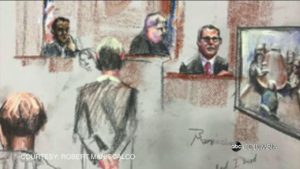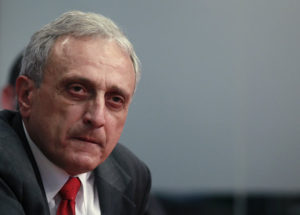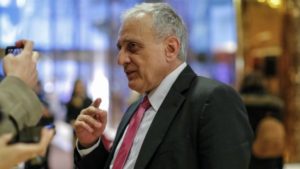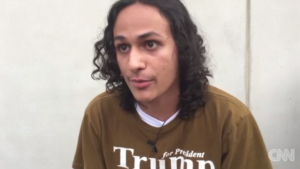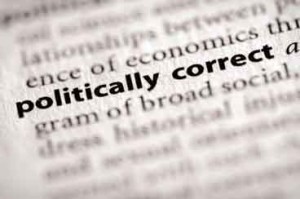
Myrna Raffkind writes frequently for the Amarillo Globe-News.
Her most recent opinion column appeared in today’s paper. I don’t subscribe to the paper; thus, I don’t see its online edition.
A Facebook friend posted Myrna’ column on his news feed. I picked it up and want to share it here.
If you have a moment, take some time read it. Myrna is one of the more thoughtful and, yes, “kinder and gentler” people I’ve ever known.
***
“An eye for an eye ends up making the whole world blind.”
— Mahatma Gandhi
After Dylann Roof’s mass shooting at Emanuel African Methodist Episcopal Church in June in South Carolina, the major focus of media attention was on the display/removal of the Confederate flag and the controversy surrounding this issue. Scarcely noticed was another incident following the shooting; this incident being the reaction of the victim’s families when they were allowed to address Roof at the bond hearing. Over and over, the victim’s family members sent the same response — “We forgive him.”
Forgiveness, the willingness to suppress the urge to retaliate, is a concept that seems foreign and almost nonexistent in today’s society.
An “I’ll get you back” mentality seems to permeate the minds and hearts of many Americans. Interestingly, it seems that those who have suffered the most from genocide and abuse are often willing to forgive.
I often think of the words of Elie Weisel, a Holocaust survivor, a man who watched all of his family tortured and killed, a man who speaks for six million Jews who were killed in the Holocaust. Weisel’s words of wisdom were that we should “forgive but not forget.”
Forgive, but not forget. This is the concept echoed by the greatest leaders of our times — Martin Luther King Jr., Mahatma Gandhi, Nelson Mandela and Pope Francis. All of these men are speaking on behalf of a minority group that has been abused and mistreated for generation after generation. And yet, they saw the power of forgiveness and the futility of resentment. Their own words send a powerful message.
MLK said, “We must develop the capacity to forgive. He who is devoid of the power to forgive is devoid of the power to love.”
Gandhi’s words were, “The weak can never forgive. Forgiveness is the attribute of the strong.”
Speaking on resentment, Mandela said, “Resentment is like a glass of poison that a man drinks; then he sits down and waits for his enemy to die.”
And more recently, Pope Francis stunned the Catholic world and aroused controversy when he declared forgiveness for women who have had abortions.
In Simon Weisenthal’s classic book, “The Sunflower,” he examines the possibilities and limitations of forgiveness. Wiesenthal, while a prisoner in a Nazi concentration camp, was taken to visit a dying member of the SS. The German soldier asked Wiesenthal for forgiveness, and Wiesenthal’s response was one of silence. For the rest of his life, Wiesenthal wondered if he had taken the correct action. He asks 53 distinguished theologians, human rights activists, political leaders and writers what they would have done had they been in Wiesenthal’s situation. Their responses are thought-provoking as well as insightful.
Several said that forgiveness was possible, but only if it is accompanied by justice. Those who have committed atrocious acts must be punished so that we will never forget.
Other respondents, thinking of the many Germans who hid Jews in their homes or helped them escape, said that those who have a sense of collective guilt for the crimes that their leaders had engaged in could be forgiven, but never their leaders or those who perpetrated acts of genocide.
Another often-given response was that it made little difference what course of action Weisenthal took; ultimately the only one with the power to forgive was God.
Interestingly, none of the respondents advocated revenge. They note retaliation only hurts. Those consumed by anger lose their capacity for love.
It was not that long ago that President George Herbert Bush argued for a kinder, gentler America — an America that exemplified compassion and respect.
As I listen to the Republican presidential candidates, I wonder what has happened to Bush’s advice. It seems to me that the major tone of most politicians, regardless of political party, is one of anger and retribution. In the debates, there is so much bickering that little time is left for discussion of constructive and workable solutions to our nation’s pressing issues. Perhaps this is just “politics as usual,” but I cannot help but wonder if the time could have been spent more productively.
Would our country not be better off if we followed the example set by the Charleston families — of Weisel, Mandela, Gandhi and Pope Francis? If we opened our minds and hearts to forgiveness?
As Thanksgiving approaches, we reflect on our many blessings, some of which are the freedom to think for ourselves, to express ourselves and to recognize the greatness of our country rather than its shortcomings. Let us bear this in mind as we say our Thanksgiving prayers, and as we strive for a kinder, gentler America.


